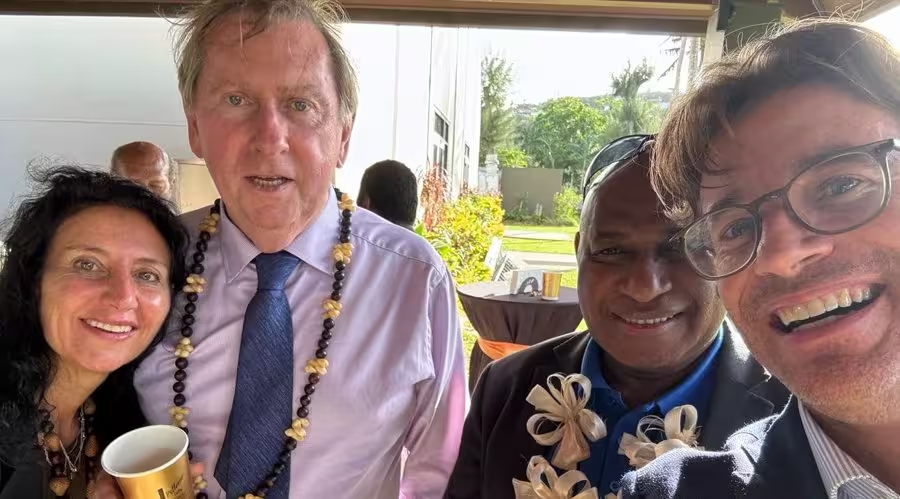A who’s who of Vanuatu’s financial industry and its regulators converged at Port Vila’s Warwick Le Lagon resort on June 27 to discuss the new licence for virtual asset service providers (VASP) and to review the jurisdiction’s best strategies to avoid global regulatory watch lists.
This was the second Symposium organized by the Vanuatu Financial Services Commission, this time under the theme “Shaping tomorrow: Exploring the role of the financial dealers licence and virtual assets in national development.” The event was attended by the Honourable John Dahmasing Salong, Minister of Finance and Economic Management and by MP Andrew Solomon Napuat.
VFSC’s Commissioner, Branan Karae, opened the day by reviewing the past year’s progress. The biggest step was the VASP Bill, now ready to become law in the next parliamentary session, probably in September.
Karae underlined his team’s efforts to streamline the application process for Financial Dealer Licences (FDL). They are now processing at least two to three every month, for a total of about 75 since the new regulatory regime was introduced in 2022. And the numbers continue to grow. The VFSC also held a mini-symposium in Sydney in May to beef up its marketing efforts and applied for membership in the International Organization of Securities Commissions (IOSCO) to enhance its reputation.
The Commissioner proudly introduced the newest Ni-Vanuatu woman in fintech, Jossiana Peter, a graduate in banking and finance from Macquarie University in Sydney, who will be the Virtual Assets Supervisor in his office.
A New Licence for Virtual Asset Service Providers
The requirements for the upcoming VASP licence were detailed in a joint presentation by Joshua Tarinako, Managing Supervisor at VFSC, and Loretta Joseph, an Australian consultant for the VFSC who has been instrumental in drafting the new Bill.
She noted that Vanuatu was “one of a few jurisdictions that have done something about virtual assets” in line with the requirements of the Financial Action Task Force (FATF), the global regulatory body for financial services.
“This ensures that the innovation due to new technology, like decentralized finance and cryptocurrencies, will be shaped within legal boundaries in a way that fosters trust and stability in the digital economy. We tried to devise clear, logical legislation that doesn’t stifle innovation and specifies what operators can and cannot do,” said Loretta Joseph.
Joshua Tarinako walked the…
























